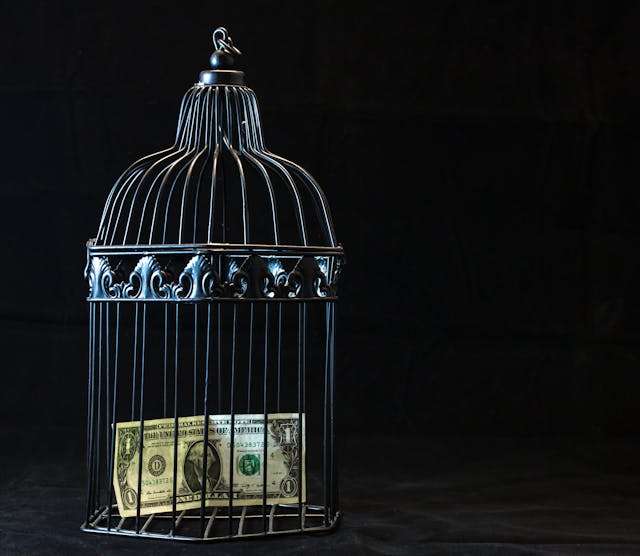In a bold legislative move, Russia is seizing Western assets, triggering a new wave of financial and geopolitical tensions. This development could reshape global investment strategies, heighten diplomatic conflicts, and set a precedent for state-backed asset confiscation. With billions at stake, investors worldwide are closely monitoring the situation.
Russia’s New Law on Western Asset Seizure
The Russian government has approved a draft law allowing widespread confiscation of foreign investments and company funds from so-called “unfriendly states”—countries that imposed sanctions on Russia following its 2022 military actions in Ukraine. According to reports, this law specifically targets approximately $300 billion in frozen Russian assets, previously held by Western nations.
The proposed legislation will enable Russian authorities to seize assets through lawsuits filed in arbitration courts, involving state entities like the Central Bank of Russia and the Prosecutor General’s Office. The law is expected to pass through the State Duma, Russia’s lower house of parliament, where it will likely receive strong support.
Why Is Russia Taking This Step?
This legislative move is seen as a direct retaliation against Western economic sanctions. Since 2022, the West has imposed harsh financial restrictions on Russia, freezing state-owned assets and limiting its global trade operations. Now, Russia is seizing Western assets by targeting foreign-owned businesses, investments, and funds still operating within its borders.
Russian President Vladimir Putin has condemned the G7’s plan to use frozen Russian assets to support Ukraine, labeling it as outright theft. In response, this new law signals that Russia is prepared to act aggressively to protect its economic interests and counter Western pressure.
Global Investors on High Alert

For foreign investors, Russia’s actions introduce unprecedented risks. International corporations, banks, and private investors with holdings in Russia could face major financial losses.
US Treasury Secretary Janet Yellen has defended the West’s position, stating that Russian assets will remain frozen but continue generating income. However, she rejected Putin’s claim that the asset seizures were illegal.
With global markets already facing volatility due to geopolitical instability, this move may drive investors away from Russian markets entirely. The uncertainty surrounding Russia’s business environment and its legal framework is making investors question whether their assets are safe in politically volatile regions.
Which Countries Are Affected?
Under this new law, assets from nations categorized as “unfriendly states” will be subject to seizure. These countries include:
- United States
- United Kingdom
- European Union members
- Other nations that imposed unilateral sanctions on Russia
The Russian government is strategically selecting these nations, focusing on states that have played a significant role in sanctioning Russia’s economy.
Legal and Economic Ramifications
International legal experts warn that Russia is seizing Western assets in a way that could violate established property rights and set a dangerous precedent for state-backed asset confiscations. This raises concerns about future economic retaliations, possibly leading to further financial instability.
The arbitration court process will be complex, with the Moscow Arbitration Court expected to play a major role. Russian authorities will determine asset seizures based on a principle of proportionality, assessing claims and legal arguments.
Additionally, the legal framework for such confiscations remains a gray area in international law. While Russia argues that its actions are justified as a countermeasure against Western financial aggression, legal experts suggest that this move could expose Russia to long-term diplomatic and trade repercussions.
Impact on Global Trade and Investments
The implications if Russia is seizing Western assets will go beyond individual investors. Large multinational corporations operating in Russia may be forced to reconsider their presence in the country, potentially leading to a mass exodus of foreign businesses. This could severely impact Russia’s already struggling economy, reducing access to foreign technology, expertise, and investment capital.
On the flip side, Western nations may respond with even tougher financial countermeasures, escalating the economic standoff between Russia and the global financial system. Some experts predict that further restrictions on Russian financial institutions and trade routes could follow.
What’s Next for the Global Economy?
The global financial landscape is on edge. If this law is passed, it could further deteriorate Russia’s already strained relations with Western powers and accelerate the trend of companies pulling out of Russia. Additionally, investors may rethink placing assets in politically unstable regions, leading to a potential shift in global investment strategies.
The G7 leaders remain firm in their stance, insisting that Russian sovereign assets will not be unfrozen unless Russia compensates for the destruction caused in Ukraine. This signals a prolonged period of economic confrontation between Russia and the West.
Final Thoughts
As Russia is seizing Western assets, global investors must reassess their portfolios and risk exposure. The financial and legal implications of this move could reshape international business dynamics for years to come.
Furthermore, this legislative action has the potential to alter how countries approach economic retaliation and asset protection in future geopolitical conflicts. As the world watches this situation unfold, one thing is certain—Russia’s financial countermeasures will leave a lasting mark on global investment strategies.
For more in-depth analysis on geopolitical and financial developments, stay updated with Documentary Times.
“Well explained, made the topic much easier to understand!”
“Great content, learned a lot from this post!”
I was recommended this website by my cousin. I am not sure whether this post is written by him as nobody else know such detailed about my difficulty. You’re incredible! Thanks!
Heya i am for the first time here. I found this board and I find It truly useful & it helped me out a lot. I hope to give something back and help others like you aided me.